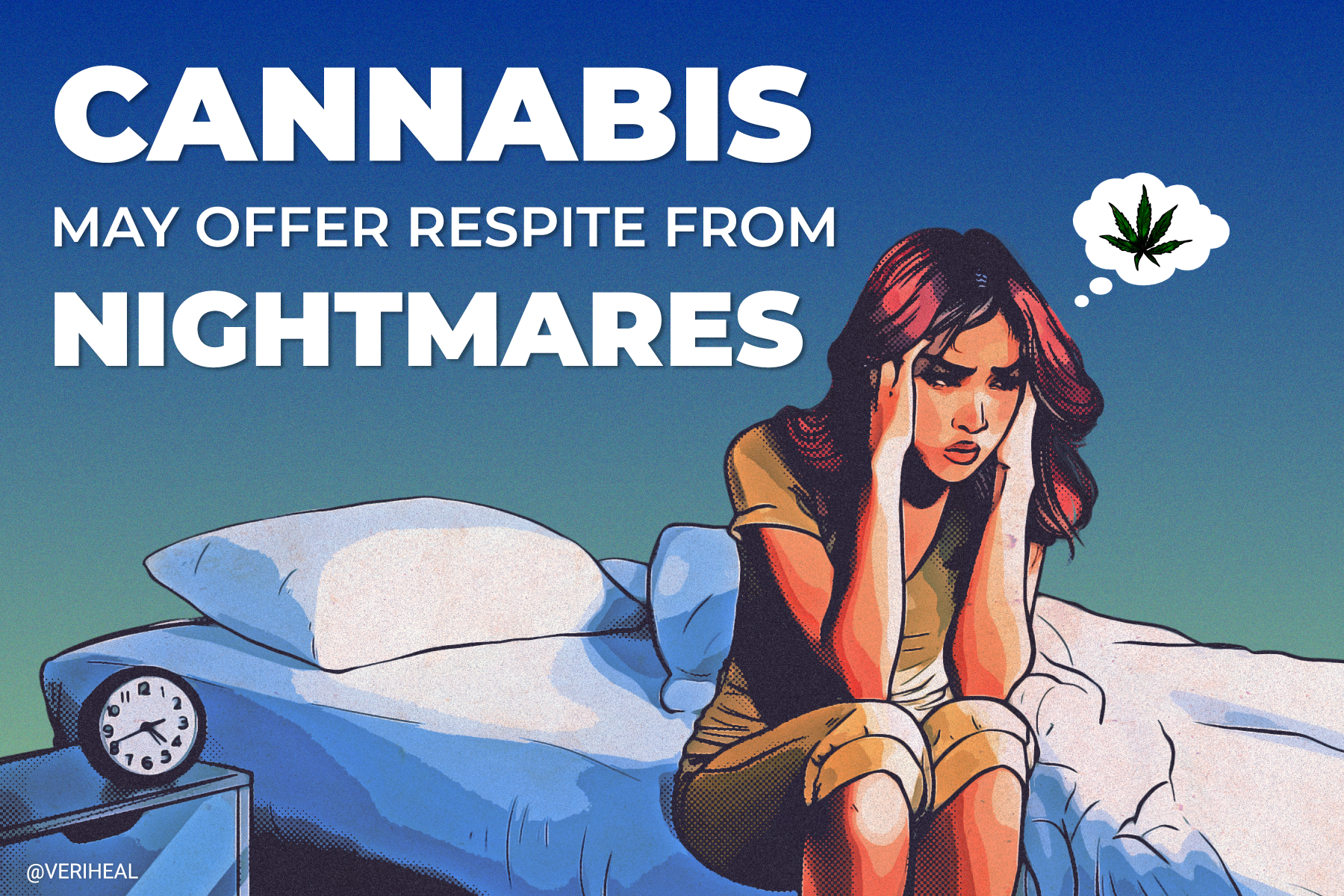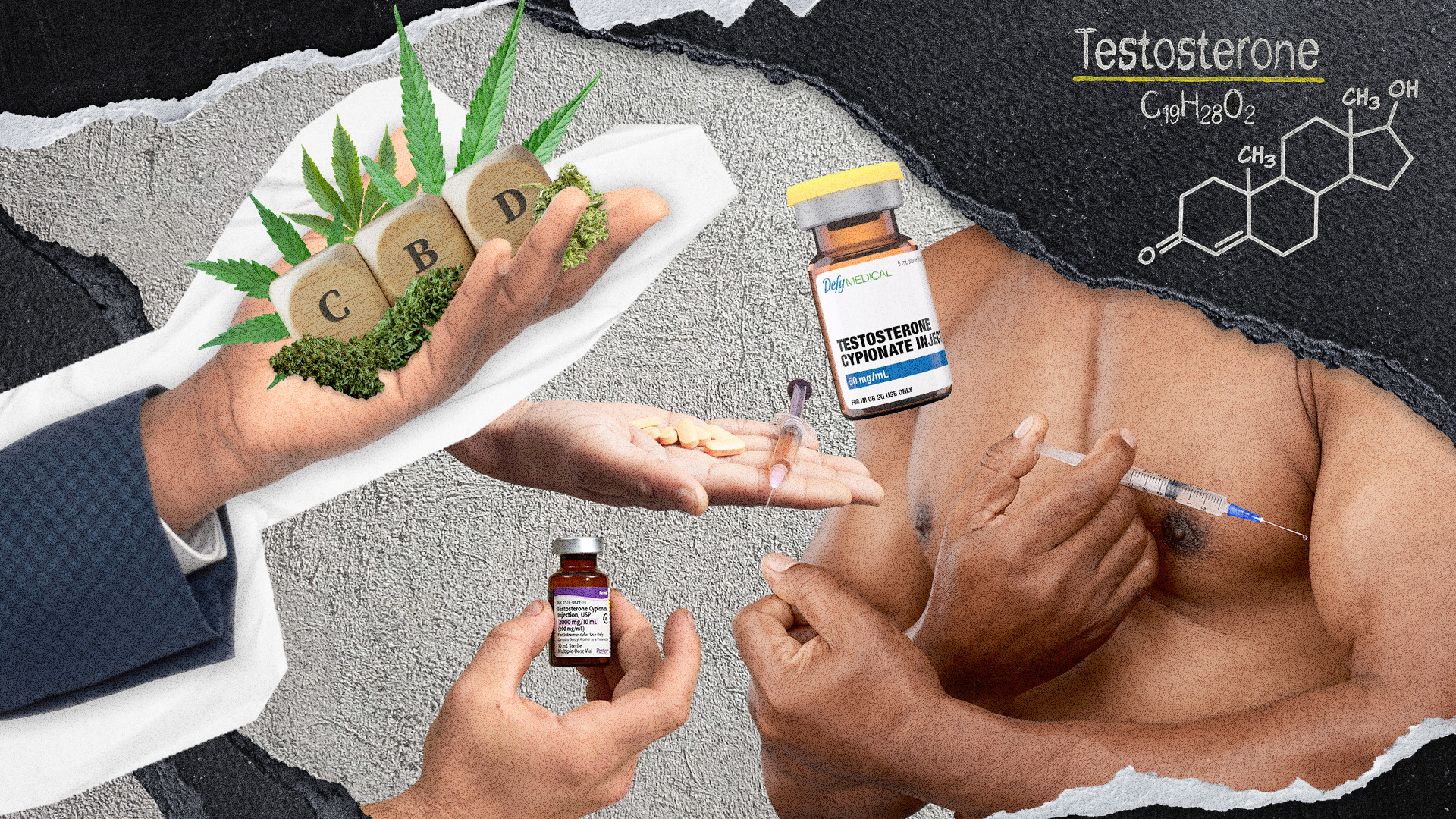Ever woken up with beads of sweat rolling down your forehead, the bed sheets tangled around you in a desperately protective clutch, and the imprint in your memory of a scary dream? If so, you can consider yourself among the 50%-85% of adults who battle the occasional nightmare during REM sleep.
For many people, the severity and frequency of nightmares are significantly worse. In fact, according to Recovery Village, 30% of the global population tends to suffer from nightmares at least once per month. The Sleep Foundation suggests that nightmares in children are most common between the ages of 3 and 6 but usually occur less often with age.
This isn’t to say that nightmares can’t affect adults, however. Millions of post-traumatic stress disorder (PTSD) patients around the world—such as ex-veterans and military servicemen—tend to relive their traumatic flashbacks and experiences during sleep.
The good news is that cannabis could be the tool for a good night’s sleep. Contrary to the popular misconception that the plant might actually cause nightmares—an untrue myth that is likely stimulated by the fact that cannabis contains psychoactive properties—research shows that it could actually serve as a form of relief from nightmares.
What Is REM Sleep?
If you weren’t already aware, there are four main stages of sleep: transitional light, light, deep, and rapid eye movement (REM) sleep. These stages of sleep repeat on multiple occasions throughout the duration of your shuteye experience, with REM being the most memorable sleep state.
REM sleep, otherwise known as “dream sleep,” tends to occur 1-1.5 hours after drifting off to sleep. It is when the eyes turn directions quickly without sending any visual information to the brain. People who endure anxiety or stress in their waking lives are susceptible to suffering nightmares during REM sleep.
Since cannabis may suppress REM sleep, many regular consumers don’t remember their dreams after using the plant. It’s important to note that most cannabis consumers have a REM comeback after being subdued by cannabis—an experience commonly reported by people who take a tolerance break from cannabis.
THC’s Connection to REM Sleep
THC plays the biggest role in forcibly stopping REM sleep. Since it reduces the length of time spent in REM sleep, dreaming is less likely to happen post-consumption. This fact is a stark contrast to what most people believe about THC, which sometimes causes paranoia in less tolerant consumers.
Furthermore, THC amplifies the time from sleep onset to REM sleep, something known as “REM latency.” The mind-altering cannabinoid may also increase the weirdness factor of a consumer’s dreams.
With this in mind, THC-rich cannabis could prove to be a valuable addition to the life of someone who regularly tosses and turns due to nightmares. On the other hand, this isn’t so appealing for the “dreamers” who enjoy navigating the often bizarre dream world.
Research has also found that a molecule similar to THC may help minimize the recurring nightmares associated with PTSD. This molecule is nabilone, an analog of THC.
Does CBD Impact REM Sleep?
As the second most commonly discussed cannabinoid after THC, it’s definitely worth looking into the effects of CBD on sleep-related issues, too. Interestingly, research shows that CBD may influence REM sleep, albeit in dose-dependent quantities.
One particular study that was published in the National Library of Medicine in 2012 found that “CBD efficiently blocked anxiety-induced REM sleep suppression.” Plus, preliminary research hypothesizes that CBD may assist people who experience excessive daytime sleepiness disorder, REM sleep behavior disorder, and insomnia.
Some anecdotal evidence also points to the likelihood of CBD inducing more lucid and vivid dreams, not to mention the cannabinoid’s power to strengthen a person’s dream recall abilities. However, the cannabis compound’s influence on REM sleep depends on dosage: Low doses tend to be stimulating, whereas high doses usually cause sedation.
Conflicting Evidence on Cannabis and Sleep
Someone who deals with ongoing episodes of sleep disorder—nightmares are renowned for inflicting anxiety, stress, and depression on those who endure them—may report experiencing low quality of life. Although it cannot be claimed to be a cure as such, cannabis could offer a viable solution for people who suffer from nightmares on an ongoing basis.
Since cannabis produces a vast array of unique compounds, it’s likely that we could find out more about the REM sleep-impacting effects of other cannabinoids in the future–particularly now that the Drug Enforcement Administration (DEA) has started reviewing cannabis research applications.
Based on the evidence we have gleaned from scientific studies so far, THC has been shown to suppress REM sleep, meaning that it could offer some respite from unpleasant dreams. Furthermore, a 2019 study published in the Journal Psychiatry & Neuroscience revealed that nabilone—the synthetic analog of THC—could improve sleep and reduce nightmares. And a 2021 study suggested cannabinoids could help people with insomnia achieve rest.
These promising findings offer a ray of hope for patients who battle regular nightmares. Then again, a different study from 2021 suggests that adults who used cannabis 20 or more days during the last 30 days were 64% more likely to have an impacted sleep of less than six hours per night or 76% more likely to sleep in excess of nine hours per night.
These conflicting findings—as well as the fact that medical cannabis research is still lacking—allude to the importance of taking a precautionary approach to cannabis use. Consulting with a doctor is a wise first move.
Author, Share & Comments















